- Home
- Industries
- Health
- Hospitals AI Tools for Healthcare: Examples & Overview
AI Tools for Healthcare: Examples & Overview
AI can machine-learn from conversations, hold amounts of data, analyze and decipher patterns, and personalize the user experience. These specific traits make it ideal for the healthcare industry, where professionals handle large amounts of sensitive data.
-
insights from 98,500+ hours of healthcare marketing experience
AI tools for healthcare have a lot of potential, and with AI in the healthcare market predicted to be worth over $148 billion, there is a lot of expectation for the future.
We will go over the following topics to examine current AI tools for healthcare, their role in the industry, and more:
- AI tools in healthcare
- 3 uses of AI tools in healthcare
- What are the challenges of AI in healthcare?
- FAQs on healthcare AI tools
AI tools in healthcare
Despite the challenges and hesitation by some healthcare professionals, there are already AI programs being used in the industry. Let’s look at some of the best AI tools currently available for healthcare.
1. Twill
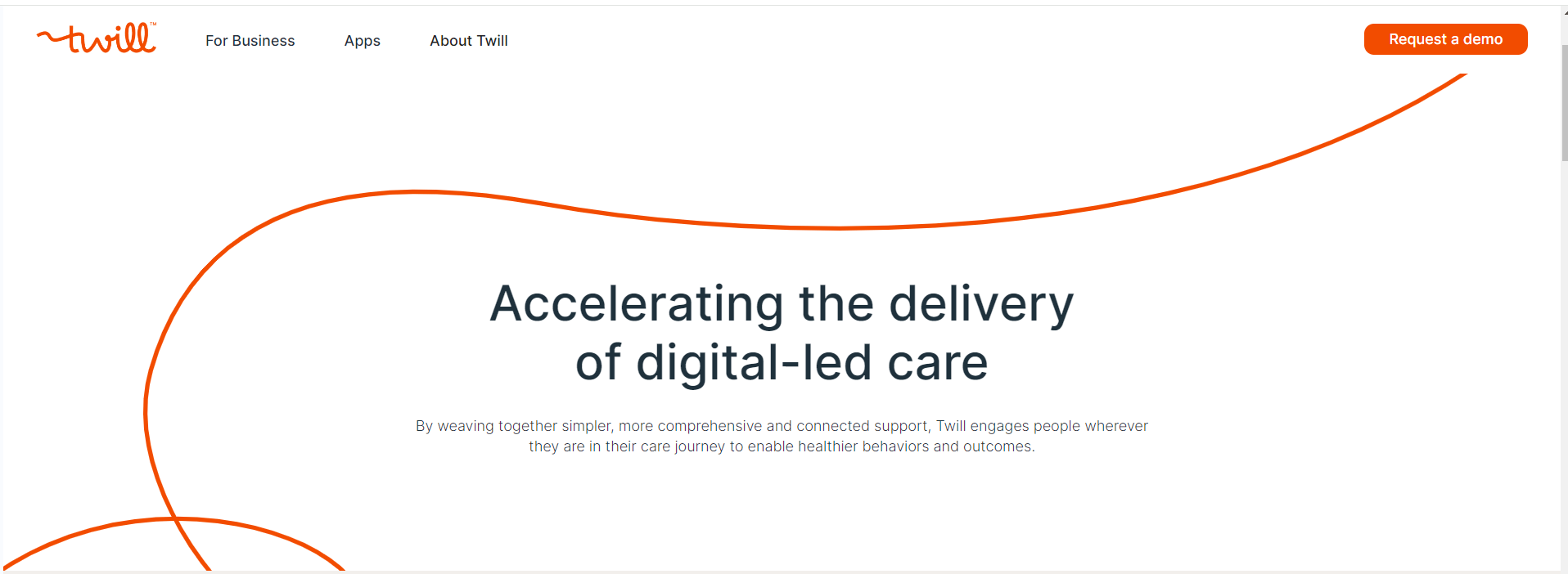
Best for: Personalized healthcare journeys with its Intelligent Healing Platform™
Twill partners with employers, health plans and pharma companies, all within one unified platform. It gives patients a single place to have all their information, with medication scripts and ordering capabilities.
They have different apps, such as ones focused on mental health or chronic care, depending on your needs. They also have options for companies wanting to give their employees healthcare options under one umbrella.
2. Google Alphafold
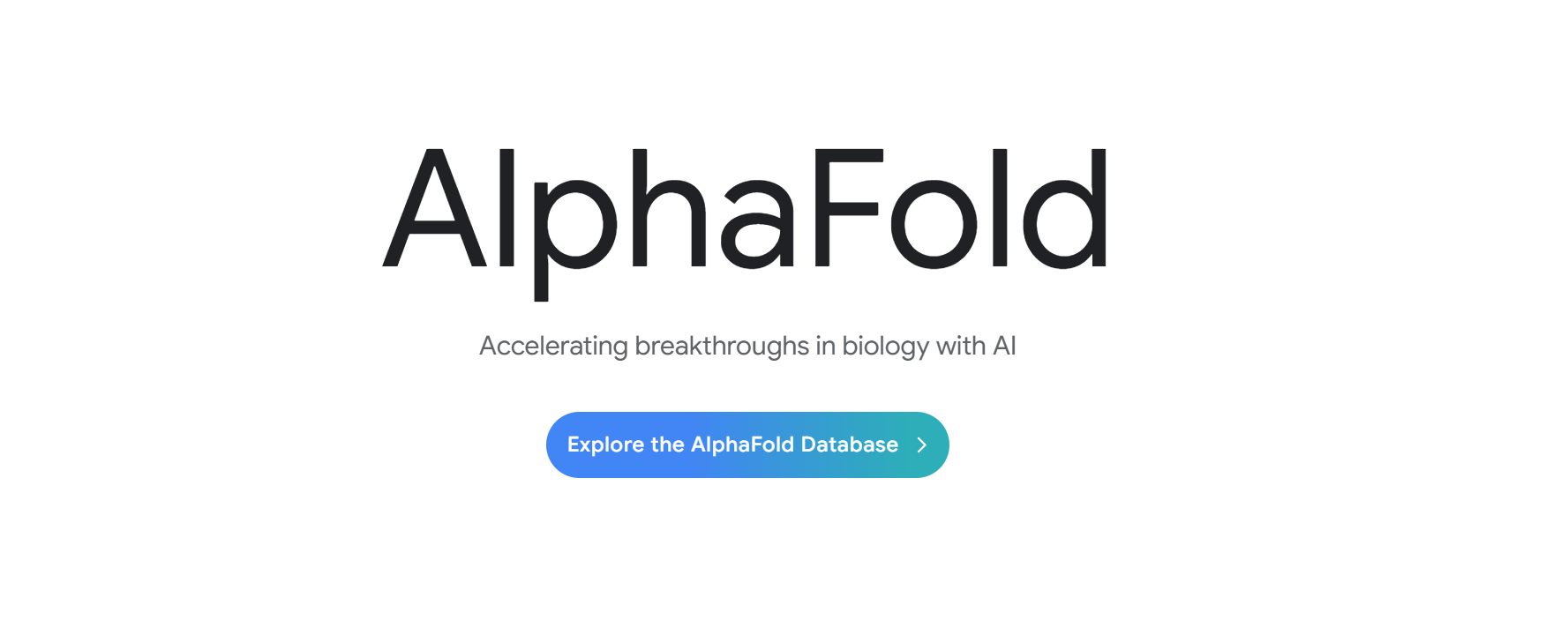
Best for: Medical imaging, diagnostics, and protein structure prediction
Google AlphaFold is an AI system developed by DeepMind (a Google-owned company) that predicts 3D protein structures from amino acid sequences. Users can apply this tool to disease research, drug discovery, and enzyme design.
Researchers used this tool to help develop the vaccine for COVID-19.
3. Merative (Formerly IBM Watson Health)
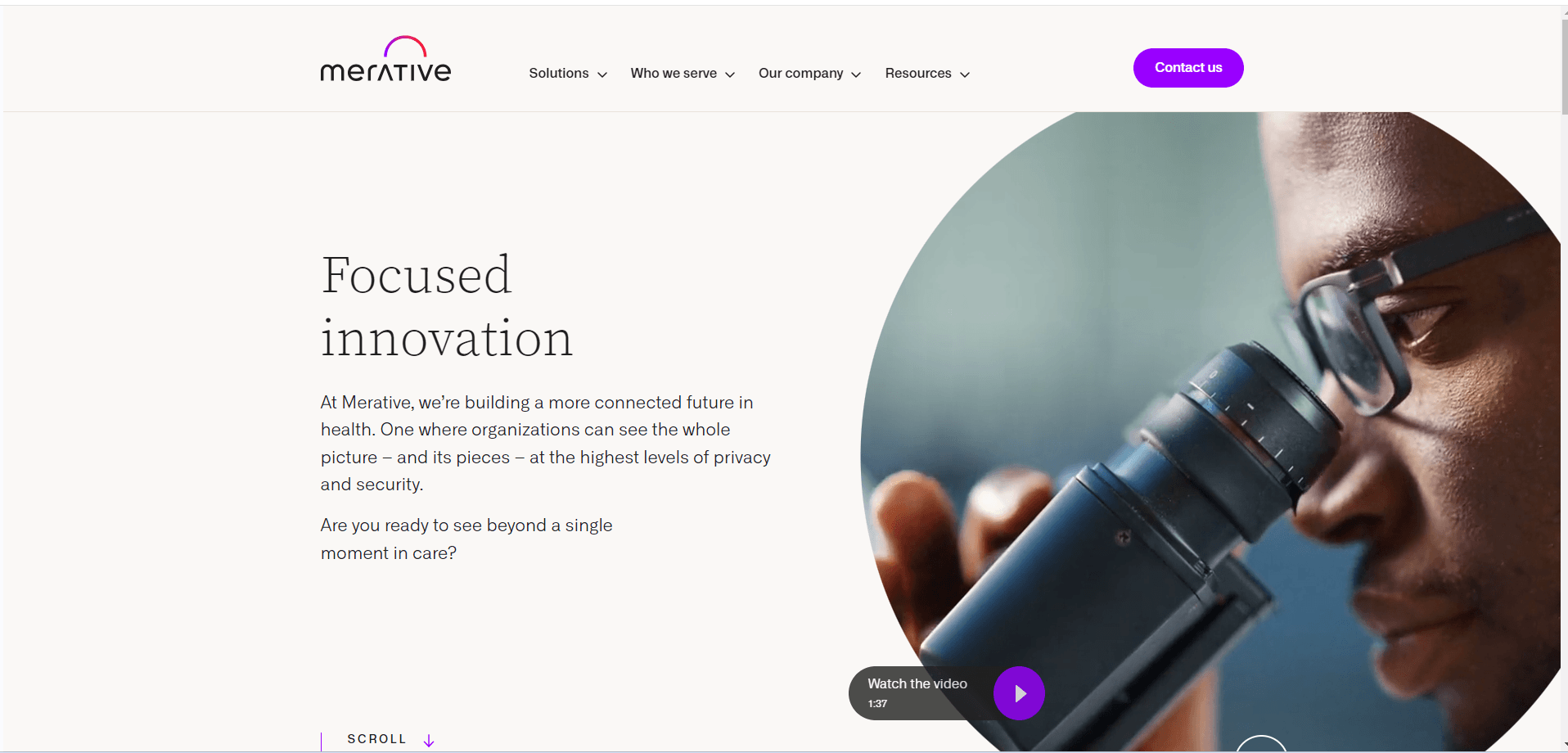
Best for: Clinical decision support and medical research
IBM has created a wide range of AI technologies for different sectors, including customer care, marketing and, now, healthcare.
Merative is one of the solutions they offer, which allows organizations to gain insights into analytics. The statistics are displayed in real time, and the client can select which categories they want to get further information on, from the costs per patient to quality metrics. AI can perform predictive analytics and provide scalability.
4. Path AI
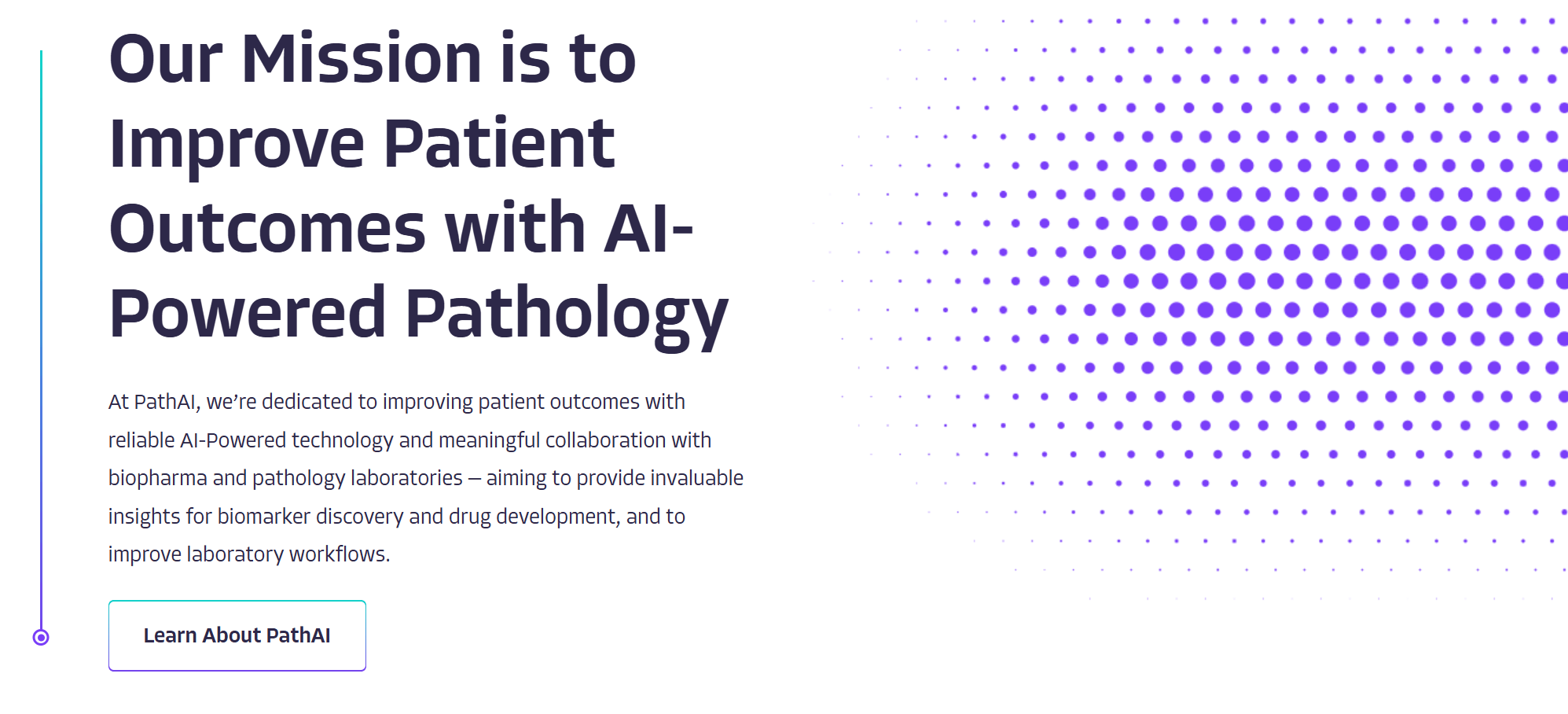
Best for: AI-powered pathology diagnostics
Path AI is a medical technology company that uses AI-powered pathology to improve disease diagnosis in fields like oncology, infectious disease, and chronic illness.
The main goal of this tool is improving diagnostic accuracy, as well as clinical trials and drug development.
3 uses of AI tools in healthcare
We all know that AI uses machine learning. But how exactly does machine learning benefit healthcare? Well, let’s break down the “how” with three examples.
1. Machine learning benefits healthcare with diagnostics and treatment
AI systems use machine learning algorithms to analyze and learn from historical data. For example, in healthcare diagnostics, an AI can be trained to identify tumors.
How is this done?
The AI-enhanced technology feeds thousands of images, such as X-rays and MRIs. Each image builds up the AI’s understanding of tumors. When you give it specific patient information or images, it can immediately identify and diagnose them accurately.
2. Natural Language Process (NLP) aids healthcare administrators
It can be a little distracting if your doctor has a person doing the transcript of your entire conversation. It could also be a little invasive for the doctor to record your conversation. However, having a record of your descriptions of symptoms and interactions could hugely benefit your sessions.
AI, specifically NLP, can capture and document all useful information without a third party or recording device. So, the doctor’s and patient’s experiences can be undisturbed and documented simultaneously.
3. Predictive analytics application to the bigger picture in healthcare
Imagine a patient comes in with a few strange symptoms. A couple of miles away, a different patient displays the same symptoms. Those two healthcare professionals wouldn’t be aware of each other, even if both patients potentially had the same issue.
But if the same doctors were using the same AI technology, they would be connected in seconds, thanks to the technology. From that point, they could work together to solve the case.
Applying machine learning to historical health data and real-time health monitoring systems can use the information to predict potential challenges for individuals. It can also predict outbreaks by recognizing emerging data patterns that resemble previous epidemics.
What are the challenges of AI in healthcare?
Revolutionizing healthcare with AI sounds like a huge leap forward for the industry. However, healthcare professionals have raised concerns about certain items that need to be addressed before everyone jumps on board, including:
- Data privacy and security: Some healthcare professionals believe that having AI technology that stores, collects, and processes large amounts of personal information conflicts with industry regulations. Data breaches and security threats pose issues for patients.
- No explanation: As AI uses what is defined as “deep learning,” many conclusions or results cannot be explained. There is no answer to its process or what guided it. This causes healthcare professionals to be uncertain —they are unsure of how the diagnostic was determined and, therefore, won’t be able to explain to patients either.
- Ethical concerns: AI tools can be biased, based on the information they’re trained with initially. Addressing these biases and having a clear process for AI-driven decisions is essential for using these tools responsibly.
- Varying accessibility: A high-tech hospital in a first-world city might have access to the latest software. However, a healthcare professional in a rural area might not. Healthcare systems that use outdated software might not integrate with AI applications. Healthcare professionals who are behind with technology in general might also have resistance, as they may be learning a new system.
- Job security concerns: There is a lot of excitement around AI technology, as it can automate tasks and perform the duties of a team in seconds. This causes concern for employees who might be nervous about job displacement.
FAQs on healthcare AI tools
Want to learn more about using AI in healthcare? Explore some common questions below:
How is AI being used in healthcare?
Currently, AI is being used in healthcare to:
- Automate time-consuming, high volume repetitive tasks
- Assist professionals with diagnostics
- Improve communication between patients and medical professionals
- Assisting with electronic health record (EHR) management
Which AI tools are good for medical students?
AI isn’t only in the professional realm — it has also penetrated the scholarly sector. Of course, medical education facilities have always used technology as much as possible to create live simulations and data capture for students, but now they are including AI in their toolkit for the next generation.
Here are a few tools to consider:
- MedQBot: A chatbot that allows students to ask questions and have conversations about areas they need help with.
- Anki: An AI-enhanced flash card app that students can use for practice tests and to check their knowledge.
- MedMastery: An online skills platform for clinicians with the added benefit of AI. The AI technology comes with a chatbot to help students through the courses. Students also use it behind the scenes to help with their workflow, generate examples, practice case studies for the courses, and access AI images.
Can AI be used for healthcare marketing?
Yes, AI has changed the landscape of healthcare marketing in several areas. The insights and behavior patterns can influence how professionals reach and communicate with their customers. AI has the ability to personalize and help focus on specific markets.
A great example of this is the RevenueCloudFX platform here at WebFX. We have integrated AI technology into our client’s platform, which allows them to get insights into user movement and behavior when they interact with their website!
Use AI tools in marketing your healthcare facility
WebFX has created a platform for our clients that is enhanced with AI capabilities to help clients better understand their marketing campaign data.
Want to see us in action? Check out this healthcare case study where we increased ROI with SEO and PPC marketing for our client, Centrak®.
Want to know more? Contact us online or call us today at 888-601-5359 for a customized, no-obligation quote. We can’t wait to hear from you!
Table of Contents
- AI Tools in Healthcare
- 1. Twill
- 2. Google Alphafold
- 3. Merative (Formerly IBM Watson Health)
- 4. Path AI
- 3 Uses of AI Tools in Healthcare
- 1. Machine Learning Benefits Healthcare with Diagnostics and Treatment
- 2. Natural Language Process (NLP) Aids Healthcare Administrators
- 3. Predictive Analytics Application to the Bigger Picture in Healthcare
- What Are the Challenges of AI in Healthcare?
- FAQs on Healthcare AI Tools
- Use AI Tools in Marketing Your Healthcare Facility
We Drive Results for Healthcare Centers
- 230+ health industry experts
- Renowned for our communication and transparency

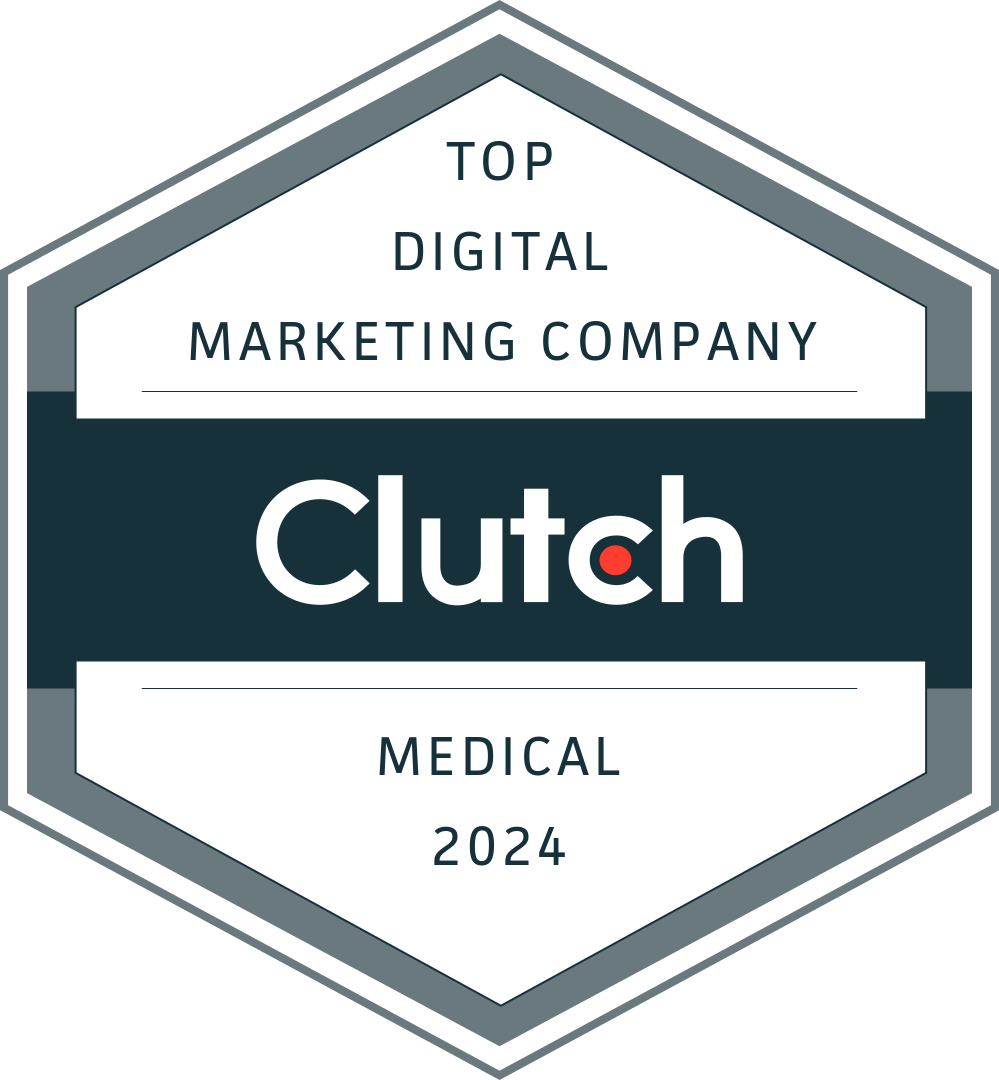

Explore our health & wellness case studies
Read our case studies for a more in-depth look at our results.
Solving key challenges for healthcare
Our website isn’t driving enough traffic
Our expert SEO specialists, copywriters, and digital advertisers will help you increase your website’s rankings when your target audience searches for your treatments online, so you can continuously drive traffic and revenue for your practice, hospital, or business.

We’re opening a new location
Set your new hospital, brand, or practice up for future success with a range of digital marketing strategies that get your new practice in front of potential patients or B2B buyers.

We’re not attracting enough patients
Get a steady flow of new patients to your practice, hospital, or brand with expertly crafted strategies that provide a seamless, engaging user experience for your website visitors, encouraging them to become patients.

We have high patient turnover
Offer new treatments or services and need to get them in front of your potential client’s eyes? Our range of revenue-driving digital advertising and marketing services have you covered and reach the people who need your facility the most.


